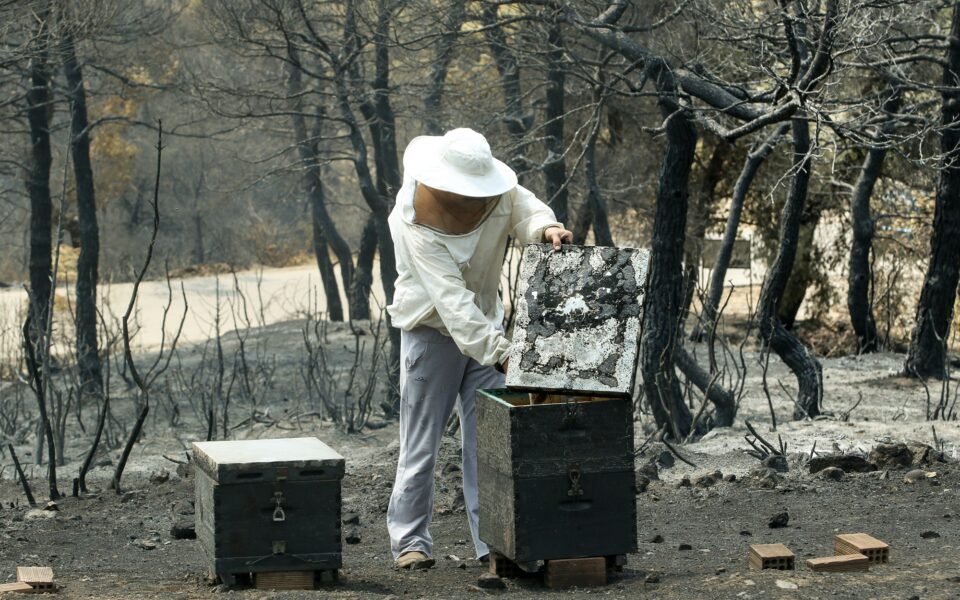Beekeepers in a battle for survival

Northern Evia experienced an awful disaster in 2021 when a wildfire charred over 50,000 hectares of land. The blow to the area’s beekeepers was heartbreaking. Many colonies did not survive and in those that did, the bees were disoriented and weak. Some beekeepers became nomads, transporting their bees – at significant cost – to other areas, mainly to southern Evia or Thessaly in mainland central Greece. They were fighting to save what could be saved.
Then came the massive wildfire in Evros in July 2023, one of the largest in Europe. The wild bees in the forest perished and the colonies that survived the blaze struggled in a devastated environment.
Then came the floods in Thessaly in September 2023. Another huge disaster. Tens of thousands of bees were swept away by the water and buried in the mud. It was not only local beekeepers who saw their livelihoods destroyed, but also those who had moved their hives to the region after the previous disasters. Those colonies that survived had to make it without food in the flooded lands.
In the period 2020-2022, there were approximately 9,500 professional beekeepers in Greece, a very low figurecompared to the 24,500 between 2017 and 2019
The loss of all these bees, in addition to the blow it has inflicted on the beekeeping sector, also means a dramatic reduction in pollination potential, with negative consequences for our natural capital.
If, to all these wounds we add the dubious quality or even adulterated honeys that are imported into Greece from China, Mexico, Argentina and elsewhere, and end up on the shelf being sold as Greek at extremely low prices, one understands why the beekeeping sector is suffering and many are leaving the profession.
According to European Union data, in the period 2020-2022, there were approximately 9,500 professional beekeepers in Greece, a very low figure compared to the 24,500 between 2017 and 2019. If beekeepers are not supported, every year there will be fewer and fewer of them. If the state does not give them the weapons they need to survive in an increasingly hostile environment, they will give up the fight.





